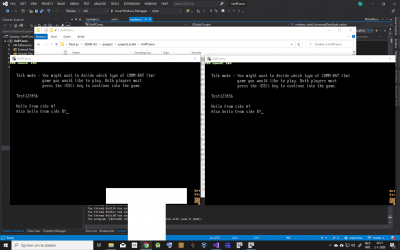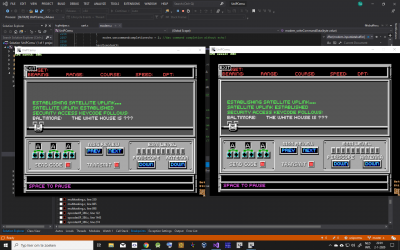Reply 20 of 54, by superfury
Hmmmm.... Looking at what's sending/receiving the modem's data and initializing it, I don't see any call from BIOS interrupt 14h(the serial communication interrupt), except when booting the system(initializing the serial port).
I also only see non-BIOS I/O to/from the data ports, so that means that the application has taken matters into it's own hand, manually driving the COM2 port.
I also see only two kinds of instructions accessing the UART data ports: 0xEE and another one of the same class(can't remember which one). Hmmm...
Edit: It's opcode 0xEC. EE for sending, EC for receiving.
Author of the UniPCemu emulator.
UniPCemu Git repository
UniPCemu for Android, Windows, PSP, Vita and Switch on itch.io

